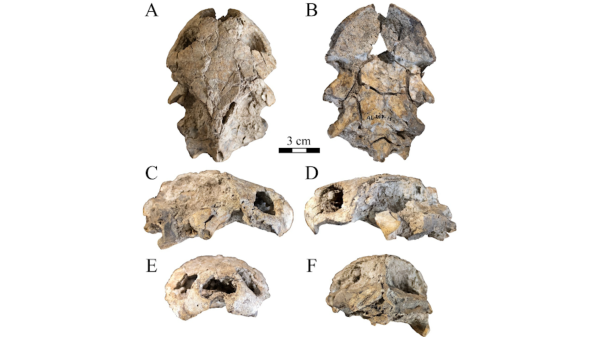Passion for interdisciplinary work earns ASU professor prestigious Sarton Medal

Jane Maienschein, decorated professor in the School of Life Sciences and Center for Biology and Society, has earned the most coveted award from the History of Science Society, the Sarton Medal, for her lifetime achievement and dedication to the history and philosophy of biology. Courtesy photo
Jane Maienschein has worn many hats throughout her career.
Just at Arizona State University, she is a University Professor, Regents Professor, President’s Professor and Parents Association Professor, as well as the director of the Center for Biology and Society and leader of the Human Dimensions faculty group in the School of Life Sciences.
In past years, she was chair of ASU's philosophy department and served as a fellow with the U.S. House of Representatives during the 105th Congress, which addressed issues of climate change and stem cell research. She also works with the Marine Biological Lab in Woods Hole, Massachusetts.
Most recently, Maienschein received the most prestigious award from the History of Science Society and her newest hat by being named a Sarton Medalist.
The Sarton Medal has been awarded to just one science historian annually since 1955 for a lifetime achievement in their field.
Maienschein says that because of her interdisciplinary focus on a variety of topics, she finds that receiving this award is “especially meaningful because it shows that we ‘ASU-type’ of people are being recognized in our disciplines as well as for cross-cutting interdisciplinary work.”
In 2015, she received the David L. Hull Prize from the International Society for the History, Philosophy and Social Studies of Biology for her interdisciplinary work.
Maienschein specializes in the history and philosophy of biology, and the way biology, bioethics and bio-policy play out in society.
According to Maienschein, thinking historically provides a different perspective on science and “helps us understand how to sort out what is reliable scientific knowledge and what is not, which is so terribly important in a political world."
Balancing her roles in history, philosophy and biology might seem like a daunting feat, but for Maienschein, she credits her ability and the ease in doing so to ASU’s flexibility and leadership.
When she began her teaching career as an assistant professor at ASU, she remembers being encouraged to pursue all of her interests together, which she says gave her a good foundation from which to be able to help build a community of others doing similar things.
“ASU is different ... and ASU is really great at letting people try things. At ASU, there’s this possibility to put it all together, and I do that ... and at (the School of Life Sciences), we have a lot of people actually mixed up and mixed together in a lot of different fields.”
Maienschein is focused on carrying on the legacy that her peers at ASU have given her by continuing to make it possible for young, rising scholars to also combine disciplines and passions. She has served as advisor for over 100 honors theses.
“It was clear that by coming to ASU I could do what I wanted to do and make it up and figure it out, and that’s been true ever since. With (former ASU President) Lattie Coor, and now Michael Crow, it’s been great to have great presidents and deans. Kenro Kusumi is a wonderful, supportive dean because he’ll say to me, ‘OK, that’s a cool thing. It doesn’t fit in a niche box, but go do it, that’s great.’
“And that's my aspiration: to support people, young people like my colleague Kate MacCord ... and those who would have to fight against the professional norms that say ‘no, you can't do that.’”
More Science and technology

New research by ASU paleoanthropologists: 2 ancient human ancestors were neighbors
In 2009, scientists found eight bones from the foot of an ancient human ancestor within layers of million-year-old sediment in the Afar Rift in Ethiopia. The team, led by Arizona State University…

When facts aren’t enough
In the age of viral headlines and endless scrolling, misinformation travels faster than the truth. Even careful readers can be swayed by stories that sound factual but twist logic in subtle ways that…

Scientists discover new turtle that lived alongside 'Lucy' species
Shell pieces and a rare skull of a 3-million-year-old freshwater turtle are providing scientists at Arizona State University with new insight into what the environment was like when Australopithecus…